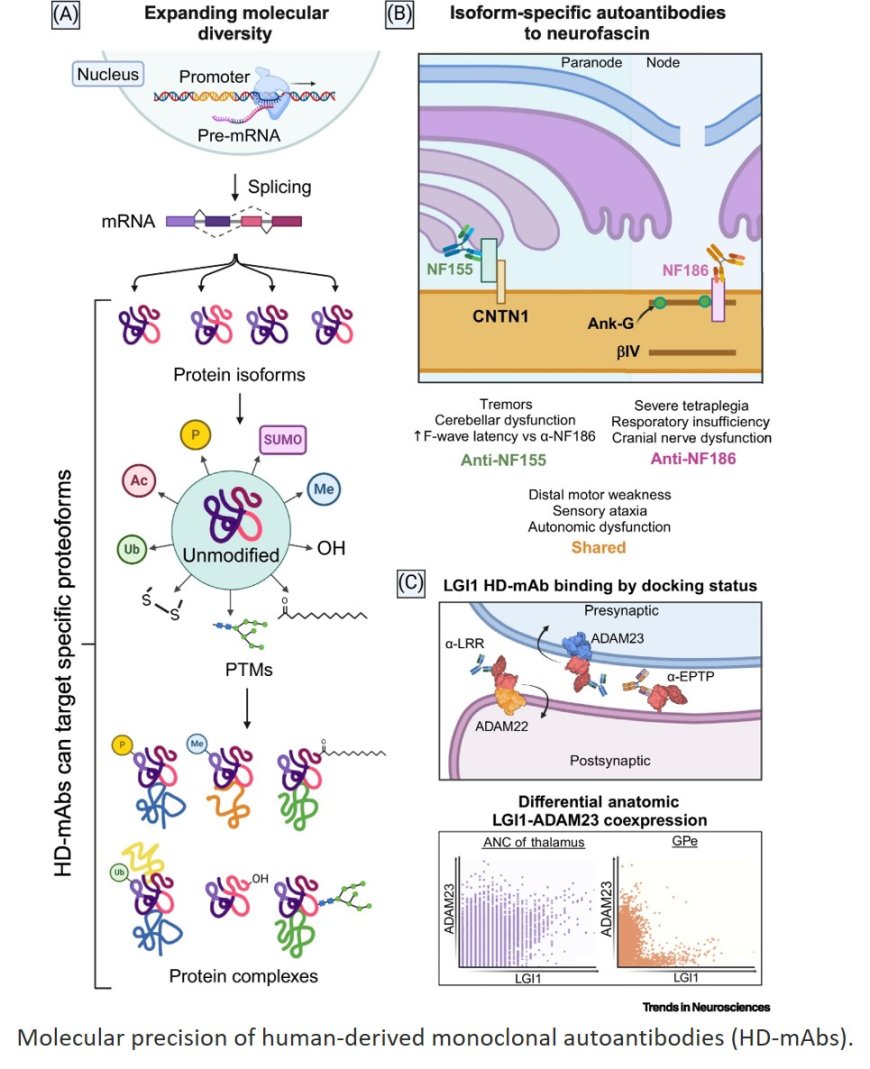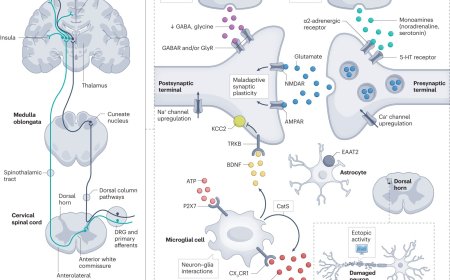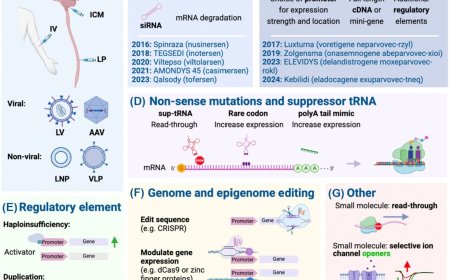Human-derived monoclonal autoantibodies as interrogators of cellular proteotypes in the brain

Human-derived monoclonal antibodies (HD-mAbs) can be used to study neural proteotypes, cell populations defined by their proteome rather than their transcriptome.
The human antibody repertoire is a nearly inexhaustible source of unique HD-mAbs that can be used to manipulate select proteotypes. Because autoantibodies can cause neuropsychiatric symptoms, some HDmAbs may help map neural proteotypes to behavioral phenomena.
HD-mAbs can traverse the placenta and are easily ported across model systems.
Antibody engineering can be used to tune the functional properties of HDmAbs, thereby increasing their versatility.
https://www.cell.com/trends/neurosciences/fulltext/S0166-2236(24)00147-4












